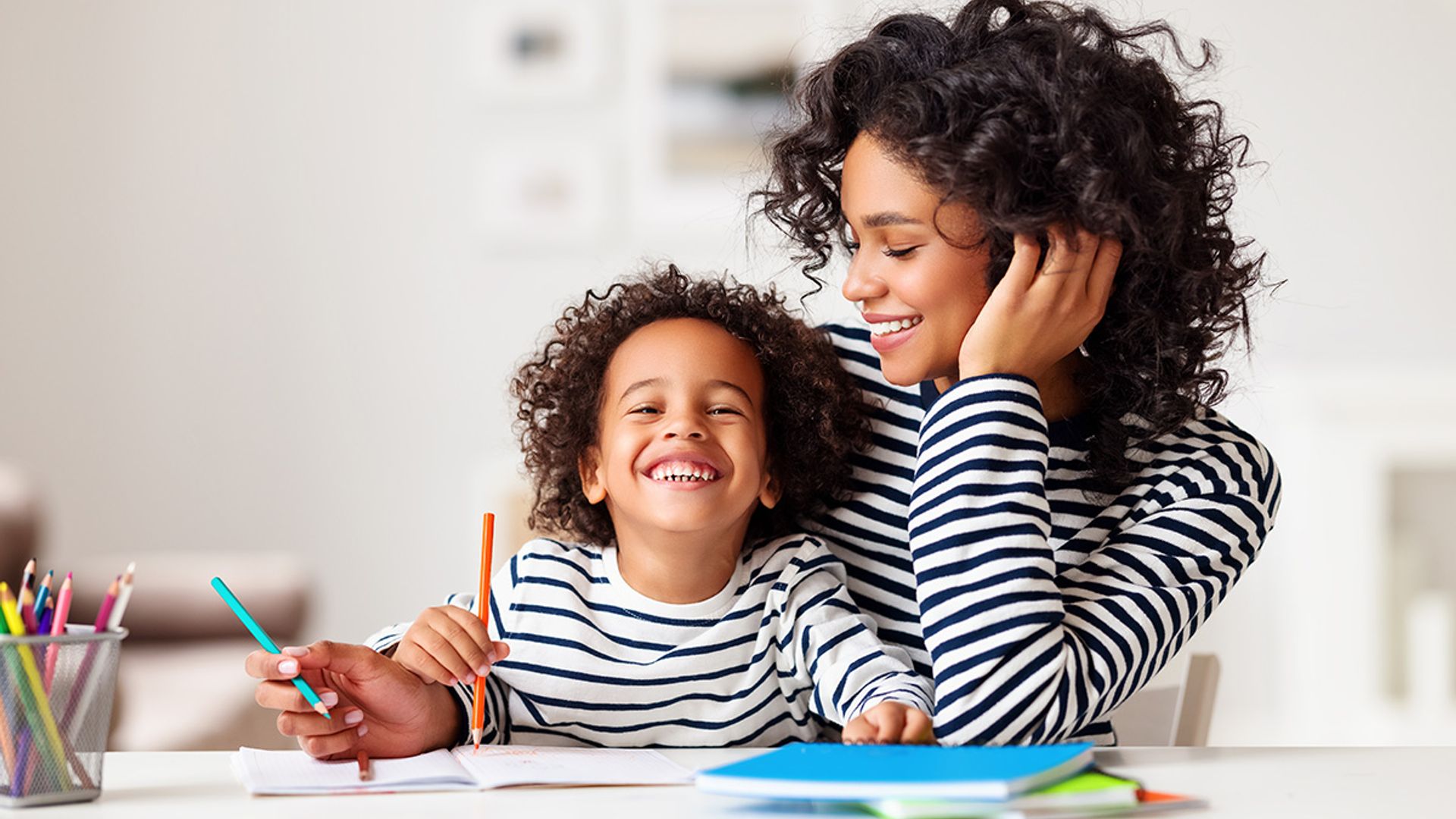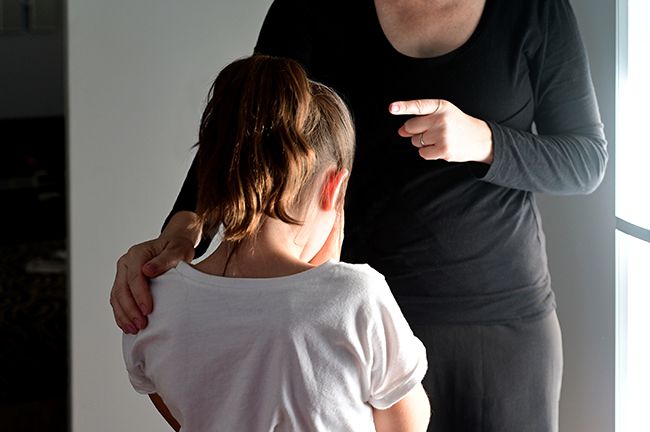From affecting your child's mental health to their education, your parenting style can have a huge and life-long impact, so it's important to consider right from the start.
Researchers have identified four main types of parenting styles which each take a different approach to interacting with and disciplining children, each with their own pros and cons for your child's development.
Parenting style can have a life-long impact on a child
"Parenting styles have such a significant impact on the child as it impacts the child's development, their growth, their discipline and has a life-long impact on them," Holly Zoccolan, parenting expert & Founder of the Carol app, which connects new mums, explains. "Parenting styles are also very influential of the child's psychology, behaviour and how they move through life."
MORE: How to deal with toddler tantrums - 5 tips a parenting coach wants you to know
The 4 types of parenting
Permissive Parenting
Common traits:
- Highly responsive
- Rarely sets or enforces limits or rules
- Communicate openly with their children
- May offer limited direction or guidance
Permissive parents are described as being highly responsive to their child's needs, but reluctant to impose limits – meaning rules and expectations are either not set or rarely enforced.
They will communicate openly with their children and go to great lengths to keep them happy, but may take on more of a friendship role, offering limited direction or guidance.
MORE: What is gentle parenting? How to practice the technique with your children
Authoritative Parenting
Authoratitive parents take their child's thoughts and feelings into consideration
Common traits:
- Highly responsive
- Set out clear rules and boundaries for children
- Communicates frequently and takes the child's feelings and opinions into consideration
- Teaches children values, reasoning skills and self-discipline
Like permissive parents, authoritative parents are also highly responsive, but also set out clear rules and expectations for their children.
They communicate with their children frequently, and take their thoughts and feelings into consideration, teaching them values and reasoning skills, which is why this is often considered the ideal parenting style.
"Children need boundaries and consistency which will help with their social skills. Just because you are authoritative it doesn’t mean you aren't warm and responsive to their needs and their own goals," Amanda Jenner, parenting expert and founder of My Carry Potty, says. "We also need to be structured for helping our children through different situations in life, education, independence, and help them achieve and adapt to develop more themselves with a good constructive guide from us as parents. But it's also important that you let them have a voice."
Authoritarian Parenting
Authoritarian parents enforce strict rules
Common traits:
- Highly demanding but low responsiveness
- Mostly one-way communication from parent to child
- Enforce strict rules with little consideration for the child's feelings
- Rigid parenting style
In contrast, authoritarian parents aren't typically as responsive to their child, but will enforce strict rules without consideration for their child's feelings or needs.
Parents typically only communicate one way to their children, without wanting feedback or input, and focuses on strict discipline.
MORE: Relaxation techniques for stressed out parents
MORE: How to help your teenager stay safe on TikTok
Neglectful Parenting
Common traits:
- Low demandingness and low responsiveness
- May appear indifferent to their child's needs
- Offer little in the way of guidance and attention
- Sometimes referred to as uninvolved parenting
Neglectful parents are often described as leaving children to mostly fend for themselves, offering little in the way of nurturance, attention or guidance. This may be because they are indifferent to their child's needs or may be focused on other things, such as feeling overwhelmed by their own issues.
This approach can have a big impact on children, meaning they may struggle to form close relationships and have self-esteem issues.
Which parenting style is best?
Studies have shown that Authoritative Parenting is the 'best' parenting style as children who have been raised with this parenting style tend to be happier, feel supported, confident and are more likely to make sound decisions and evaluate safety risks by themselves. However parenting styles are really dependent on the parent of the child.
"There is no one right way to parent a child, every child is different as is every parent," Holly says. "Sometimes parents don't fit into one set category of parenting and certain elements of each parenting style may work best for your child, so it's important to be aware of this."
EXPERT TIPS: How mums can manage their mental load
Rachel FitzD, a parenting expert and speaker at The Baby Show, says that while the majority of parents wish to be authoritative, they actually often move between permissive and authoritarian parenting instead.
"They try to be very child-led but bend the boundaries, giving more and more rope, pleading and bribing for good behaviour until they start to feel the power balance tip and then they lose their temper, becoming the very thing they dread - the 'shouty parent'. They lose their rag, dish out punishments such as time out or the 'naughty step' (just a modern variation of sending a kid to standing the corner) until they start to feel that guilt creeping in again, and so they scurry back to the relative safety of being permissive," Rachel says.
How should parents choose a parenting style?
Every parent is different as is every child. However there are certain parenting styles that are obviously more supportive and beneficial to the child than others.
Rachel says parents should consider their own childhood experiences when thinking about the way they want to raise their children.
"Rather than just leave your parenting skills in the lap of the Gods, spend time thinking about your own experiences growing up and talk to your partner about theirs too and then, between you, agree the kind of strategies you would like to use for parenting," she explains. "If you simply aren’t able to join a parenting course run by trained professionals, then take a good look at some parenting books and pick just one or two which speak your language and feel comfortable - if the approach doesn’t sit right then chances are you will end up feeling unhappy and not be able to follow the advice."
How do parenting styles impact children?
Holly suggests that understanding the pros and cons to the different styles is a good place to start when choosing your approach, as they can have a lasting impact on children. For example, Authoritarian parents leave out a crucial part of parenting by failing to explain why certain rules are important, Permissive parents don't consider long-term consequences of letting their child act however they would like, Uninvolved parents are negative and can have a detrimental impact on the child and how they grow up. Authoritative parents have a positive parenting style and tend to raise relaxed, calm, confident children who have a healthy psychological development and tend to lead happier lives.
Like this story? Sign up to the HELLO! Family Hub newsletter to get other stories like this delivered straight to your inbox.











